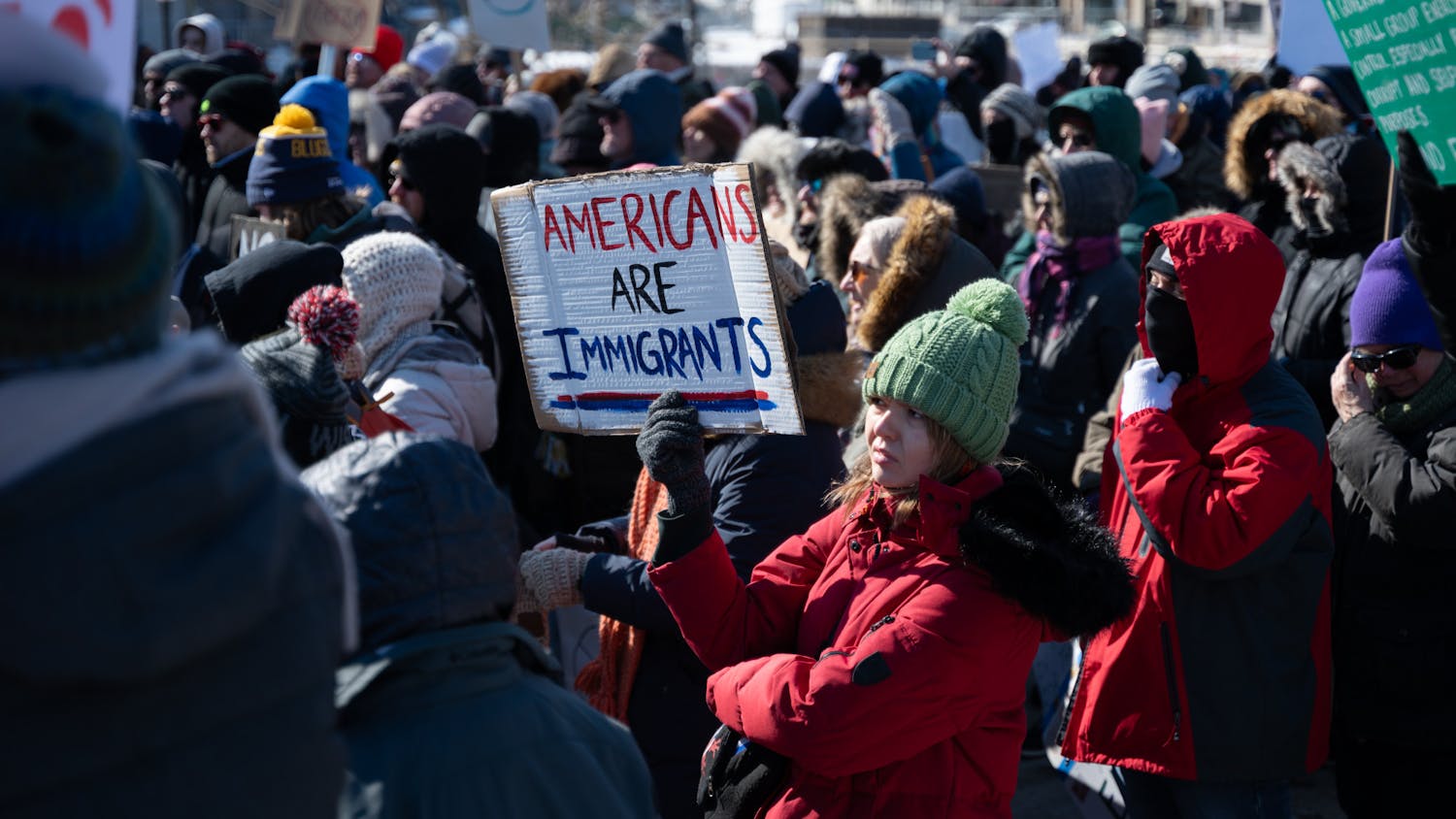Amid the thousands of UW-Madison students gearing up for the trek home to indulge in their Thanksgiving dinners, there is a commonly overlooked campus population focusing their attention on a much realer subject: where they will find their next meal.
“To an extent it’s kind of an invisible problem: you can’t really look at somebody and see where they sleep at night or whether or not they’re able to feed themselves,” said Associated Students of Madison Vice Chair Derek Field.
Field, along with ASM Chair Genevieve Carter, recently pushed for funding in the student governing body’s 2015-’16 internal budget to establish a campus Food Pantry, aimed to help food-insecure students on campus have access to consistent food sources.
The student-run pantry will be housed in the Student Activity Center and will begin organizational planning to be operational come August of next year, according to Carter.
One such student who said she will benefit from the pantry’s existence is Brooke Evans, a 23-year-old who has been homeless since 2010.
“There are students here that struggle more than you think they do,” Evans said.
Over the past five years, Evans said she has struggled to balance two to four jobs a semester in order to stay afloat and keep the goal of receiving a college degree a reality.
However, having financial resources from the university’s administration is something Evans said she feels is not always readily available or at the forefront of university-wide discussions.
“You see Melvin Gordon in the newspapers all of the time, and that’s great and he’s great on the field but there are a billion other Melvin Gordon’s in their own fields,” Evans said. “Some of the students who don’t overachieve here and do super well are students who are facing a giant war when they go home, when they don’t have a home … but we don’t ever think about that. We don’t ever give credit to those students who are dying getting their degree here.”
Sara Goldrick-Rab, director of Harvesting Opportunities for Postsecondary Education (HOPE) Lab, said research has found students who are already at a disadvantage financially are either forgoing or reducing their meals because of a lack of time or money.
“We can wait for the state Legislature and foundation of UW to get their act together and help us lower college cost, but in the mean time we can’t let people be hungry,” Goldrick-Rab said.
Evans said she is hopeful the pantry will be the first step in many that will propel UW-Madison further into financial advocacy for students.
With this initiative being led by her student peers, Evans said she hopes students like her will soon feel at home on UW’s campus.
“I think a lot of people want to look at their time at university and see themselves in it. They want to be able to see a reflection of themselves, some small speckle in this giant sky that is UW … and I don’t think students like me see themselves there,” Evans said. “I want to be able to see myself in my university. I want my university to look at me, to recognize me and to be proud of me in respects to the things I’ve accomplished with the lot I’ve been given.”





